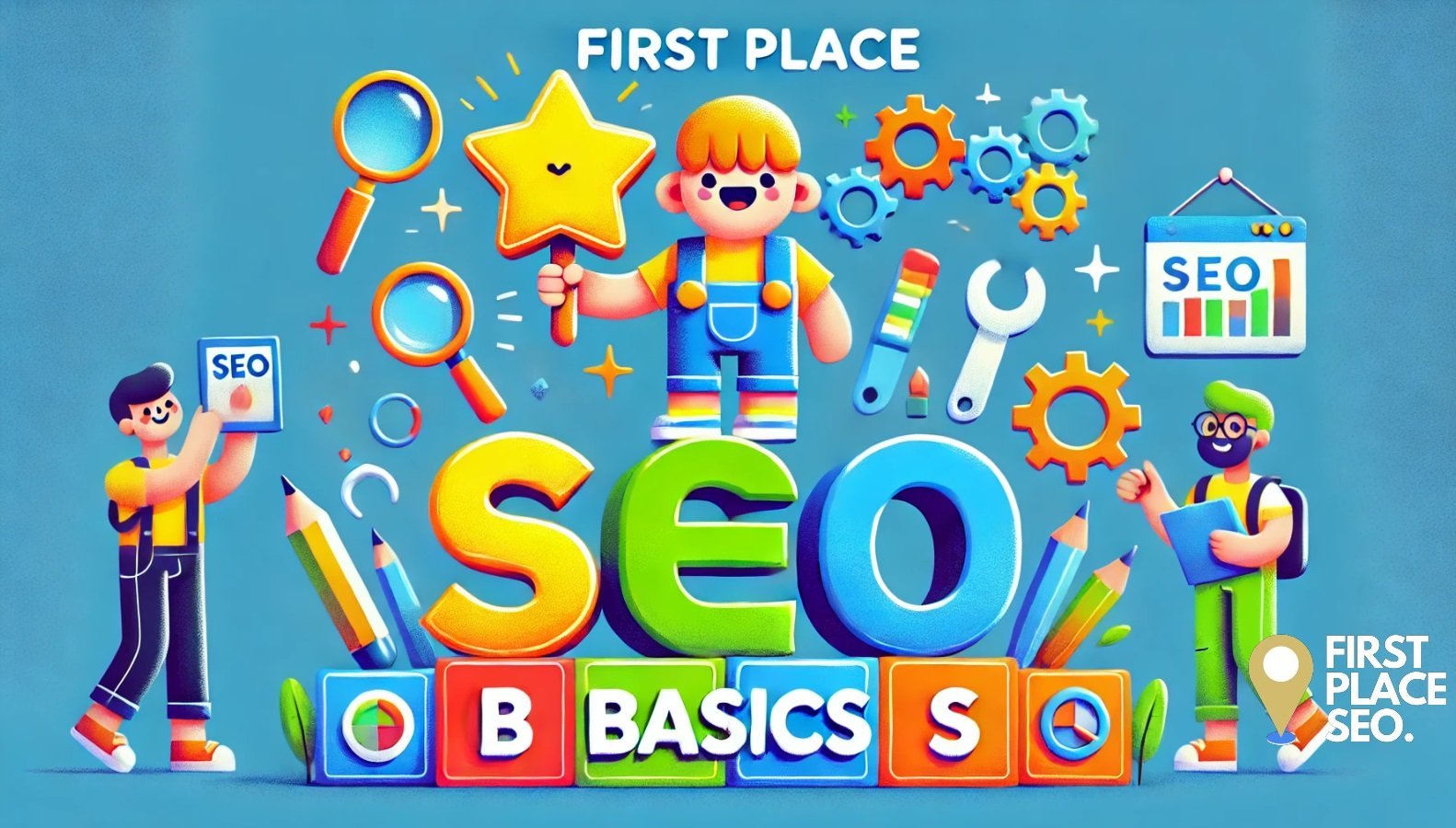Are you struggling to increase sales despite having a great product or service? Improving your online visibility could be the key. I have worked with numerous businesses to enhance their SEO strategies and seen first hand how effective these tactics can be. This guide covers the top 10 SEO methods your business needs to boost sales by attracting more targeted traffic.
1. Optimising for Long-Tail Keywords
Targeting long-tail keywords can attract highly specific traffic that is more likely to convert. Here are strategies to identify and optimise these valuable keywords.
Identifying Long-Tail Keywords
Start by brainstorming phrases relevant to your business that reflect the searcher’s intent. Use tools like Google Keyword Planner, Ubersuggest, and AnswerThePublic to find long-tail keywords with decent search volume and low competition. Analysing your competitors can also reveal keyword opportunities.
Implementing Long-Tail Keywords
Once identified, incorporate these keywords naturally into your content, including blog posts, product descriptions, and meta tags. Avoid keyword stuffing, which can lead to penalties from search engines. Instead, focus on creating informative and engaging content around these keywords.
2. Creating High-Quality Content
High-quality content is the backbone of any successful SEO strategy. It helps in ranking higher on search engines and keeps your audience engaged.
Understanding User Intent
Before creating content, understand what your audience is looking for. Are they seeking information, looking to make a purchase, or comparing products? Tailoring your content to meet these needs will make it more relevant and valuable to your audience.
Crafting Engaging Headlines
A compelling headline can make the difference between a click and a pass. Use power words, numbers, and clear benefits to create headlines that grab attention. Tools like CoSchedule’s Headline Analyzer can help optimise your headlines.
Using Multimedia in Content
Incorporate images, videos, infographics, and other multimedia elements to make your content more engaging. Visual content can break up text, making it easier to read and understand. Additionally, multimedia can help illustrate points more effectively and increase time spent on your page.
3. Improving Website Speed
Website speed is a critical factor for both user experience and SEO. Slow-loading pages can lead to high bounce rates and lower rankings.
Analysing Current Speed
Use tools like Google PageSpeed Insights, GTmetrix, and Pingdom to analyse your website’s current speed. These tools provide detailed reports and recommendations on how to improve your site’s performance.
Practical Speed Improvement Tips
Implement the following strategies to enhance your website speed:
- Optimise images by compressing them without sacrificing quality.
- Use a content delivery network (CDN) to distribute your content globally.
- Minimise HTTP requests by combining CSS and JavaScript files.
- Enable browser caching to reduce load times for returning visitors.
- Use faster hosting solutions that provide better server response times.
4. Building Backlinks from Authoritative Sites
Backlinks from reputable sites signal to search engines that your content is trustworthy and valuable.
Finding High-Quality Sites
Identify authoritative sites in your niche by using tools like Ahrefs and SEMrush. Look for sites with high domain authority, relevant content, and good traffic.
Outreach Strategies for Backlinks
Reach out to these sites with personalised emails offering guest posts, collaboration opportunities, or resources that would benefit their audience. Building relationships with industry influencers and engaging with their content can also lead to natural backlink opportunities.
5. Optimising for Mobile Users
In today’s world, a significant portion of web traffic comes from mobile devices. Ensuring your website is mobile-friendly is crucial for both user experience and SEO rankings.
Mobile-Friendly Design Principles
Start by adopting a responsive web design that automatically adjusts to different screen sizes. Ensure that text is readable without zooming, buttons are easy to tap, and navigation is intuitive. Tools like Google’s Mobile-Friendly Test can help assess your site’s mobile compatibility.
Testing Mobile Usability
Regularly test your website on various mobile devices to identify and fix any usability issues. Pay attention to loading times, navigation, and overall user experience. Tools like BrowserStack allow you to test your site across multiple devices and browsers.
6. Enhancing User Experience (UX)
A positive user experience can lead to higher engagement, lower bounce rates, and better SEO performance.
Simplifying Navigation
Ensure that your website’s navigation is straightforward and intuitive. Use clear labels for menu items, and consider implementing a breadcrumb trail to help users understand their location within your site. A well-organised site structure can significantly improve the user experience.
Improving Site Layout
The layout of your website should be clean and uncluttered. Use whitespace effectively to separate different sections and elements. Ensure that your call-to-action buttons are prominent and easy to find. A visually appealing and well-structured site can enhance user engagement and satisfaction.
7. Leveraging Local SEO
For businesses targeting a local audience, optimising for local search is essential to attract more customers from your geographic area.
Claiming Google My Business
Claim and optimise your Google My Business listing to appear in local search results and Google Maps. Provide accurate and up-to-date information about your business, including address, phone number, and hours of operation. Encourage satisfied customers to leave reviews, as positive reviews can boost your local rankings.
Local Citation Building
Ensure that your business information is consistent across all online directories and citation sites. This consistency helps search engines verify the legitimacy of your business and improves your local search visibility. Tools like Moz Local can help manage and monitor your local citations.
8. Utilising Schema Markup
Schema markup is a type of structured data that helps search engines understand your content better and provide richer search results.
Types of Schema Markup
There are various types of schema markup you can use, including organisation, product, event, and review schema. Choose the types that best fit your content to enhance its visibility in search results.
Implementing Schema on Your Site
Use Google’s Structured Data Markup Helper to generate schema markup for your pages. Once created, add the markup to your HTML code. Regularly test your structured data using the Rich Results Test tool to ensure it is correctly implemented and functioning as expected.
9. Conducting Regular SEO Audits
Regular SEO audits are essential to maintain and improve your website’s search performance.
Key Areas to Audit
Focus on key areas such as on-page SEO, technical SEO, backlinks, and content quality. Check for issues like broken links, duplicate content, missing meta tags, and slow loading times.
Tools for SEO Audits
Use tools like Screaming Frog, Ahrefs, and SEMrush to conduct comprehensive SEO audits. These tools provide detailed insights and recommendations for fixing any identified issues.
10. Integrating Social Media and SEO
Social media can significantly enhance your SEO efforts by driving more traffic to your website and increasing engagement.
Choosing the Right Platforms
Identify the social media platforms where your target audience is most active. Focus your efforts on these platforms to maximise your reach and engagement.
Creating Shareable Content
Produce content that is valuable and shareable, such as infographics, videos, and blog posts. Encourage your audience to share your content by adding social sharing buttons to your pages. Engaging with your audience on social media can also drive traffic back to your website and improve your SEO.
Summary of the 10 proven SEO methods you need to increase sales
Implementing these 10 SEO tactics can significantly boost your business’s online visibility and increase sales. From optimising for long-tail keywords to leveraging social media, each strategy plays a crucial role in attracting and converting targeted traffic. Regularly auditing your SEO efforts and staying updated with the latest trends will ensure your business remains competitive in the ever-evolving digital landscape.

Frequently Asked Questions About SEO Methods
What are long-tail keywords and why are they important?
Long-tail keywords are specific phrases that potential customers use when they are close to making a purchase. They are important because they attract highly targeted traffic that is more likely to convert.
How can I improve my website’s speed?
You can improve your website’s speed by optimising images, using a content delivery network (CDN), minimising HTTP requests, enabling browser caching, and using faster hosting solutions.
Why is mobile optimisation important for SEO?
Mobile optimisation is important because a significant portion of web traffic comes from mobile devices. A mobile-friendly website improves user experience and can boost your search rankings.
What is schema markup and how does it benefit SEO?
Schema markup is a type of structured data that helps search engines understand your content better. It can improve your visibility in search results and enhance SERP features like rich snippets.
How often should I conduct an SEO audit?
It is recommended to conduct an SEO audit at least once every six months. Regular audits help identify and fix issues that could be harming your rankings.
How can social media impact my SEO?
Social media can drive more traffic to your website, increase engagement, and improve your search rankings. Integrating social media with your SEO strategy can enhance your online presence and visibility.











